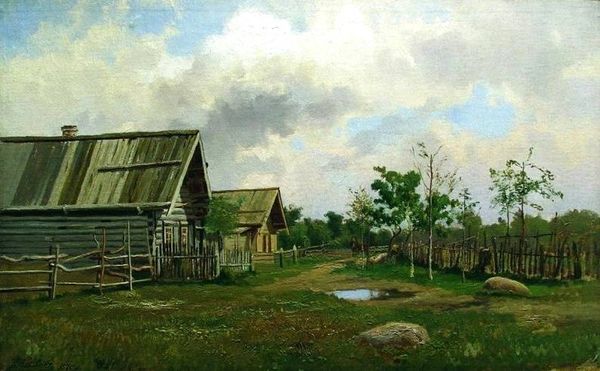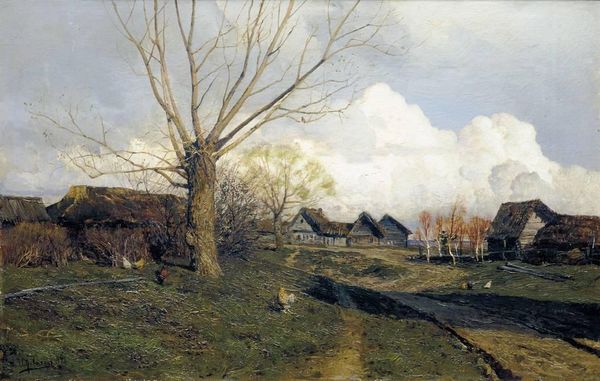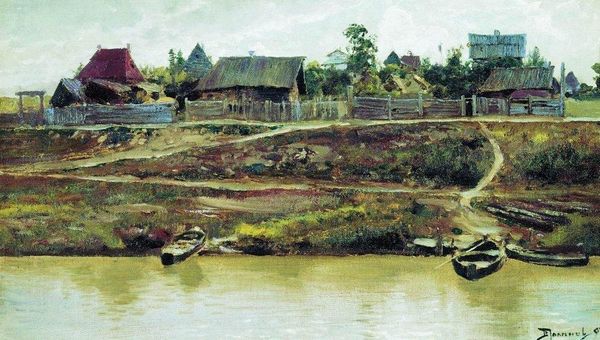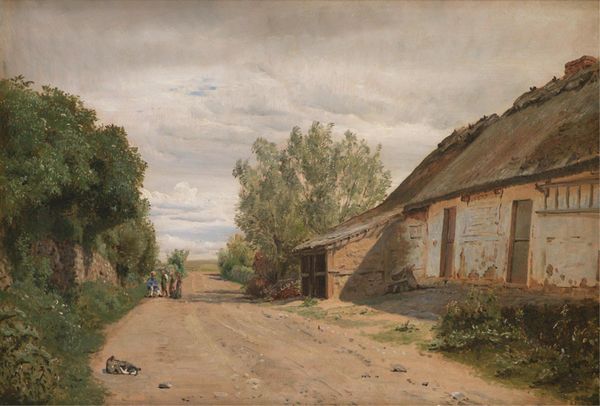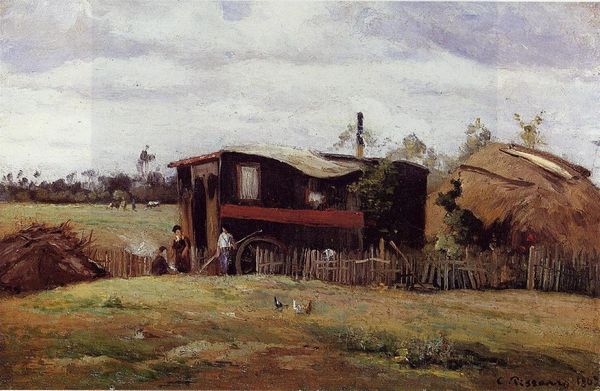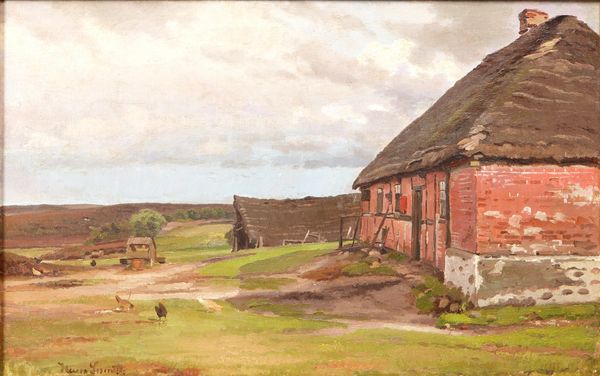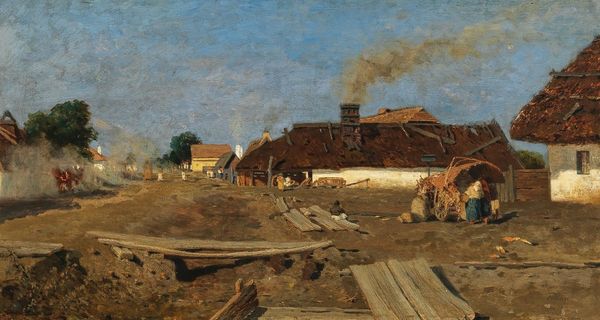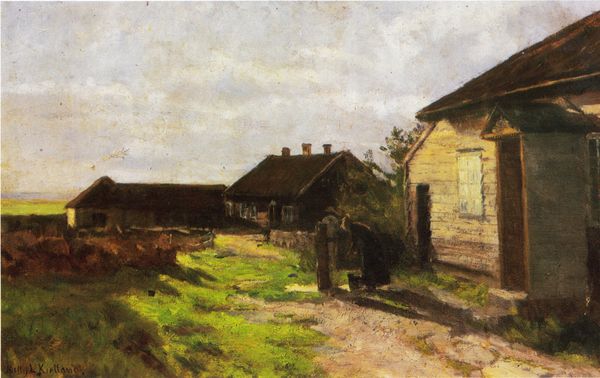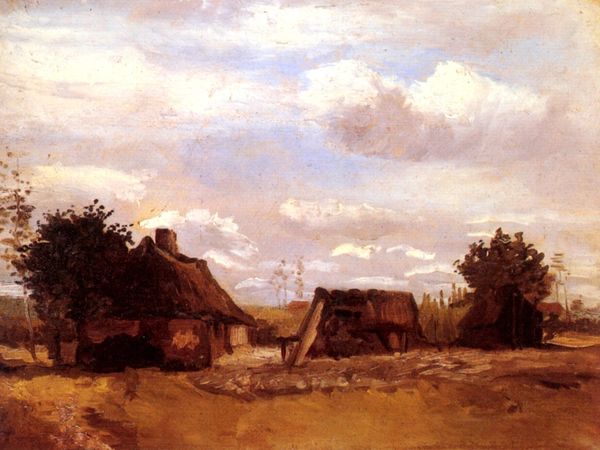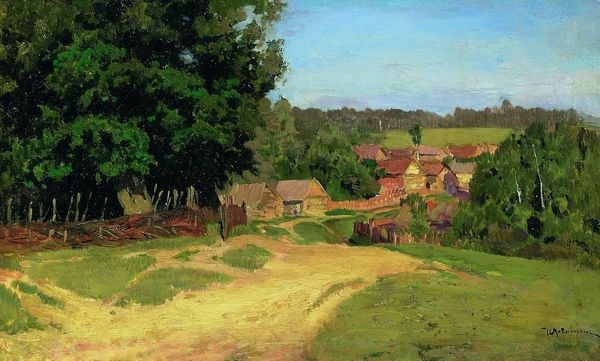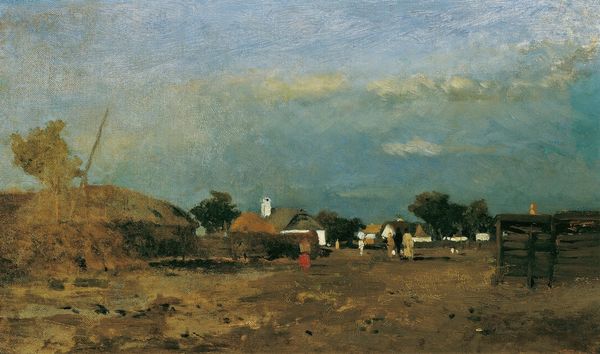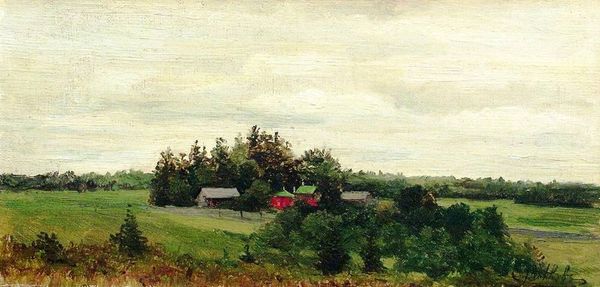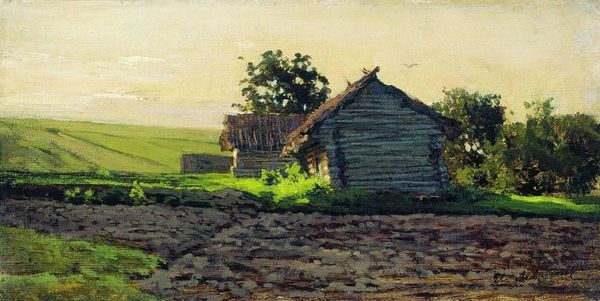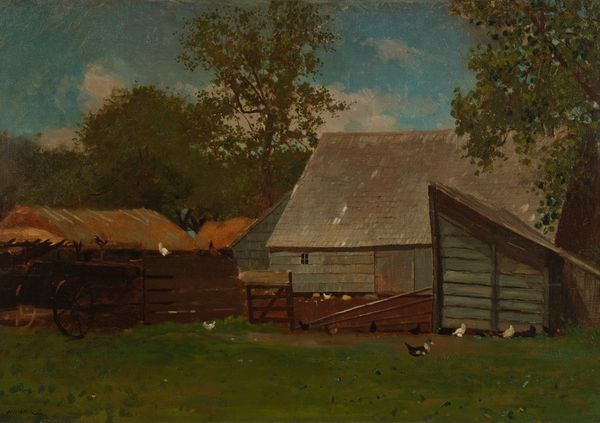
painting, oil-paint
#
rural-area
#
painting
#
impressionism
#
oil-paint
#
landscape
#
house
#
impressionist landscape
#
oil painting
#
genre-painting
Dimensions: 72 x 102 cm
Copyright: Public domain
Curator: It looks…oppressive. Is that the right word? All that heavy sky bearing down on the village. Editor: Indeed. We're looking at Isaac Levitan’s “Before the Thunderstorm,” painted in 1879. This piece captures a Russian rural landscape just moments before a downpour, painted with oil on canvas. Curator: The scene is undeniably weighted down, visually. See how the eye is immediately drawn upward, towards those churning, grey clouds. And yet, at the same time, our focus rests at those two small children down on the muddy ground, who are seemingly oblivious of any immediate dangers. Editor: Precisely. Consider the period in which this was created. Levitan, as a Jew, faced considerable anti-Semitism. This painting, presented just as Russia began to experience rising tensions with peasant uprisings and revolutionary ferment, suggests an anxious quiet before a potential political storm as well as a weather-related one. Curator: The technique here is worth noting too. The almost frenetic brushstrokes in the sky compared to the softer rendering of the fields— it is a masterclass in creating texture and depth. And the colour palette, although muted, has such a subtle interplay of greens, browns, and greys. Editor: That tension you’re picking up on likely resonated powerfully within its initial socio-political context. The seemingly peaceful rural life painted actually held a good deal of strife and uncertainty as society stood at a crossroads. That’s also what is fascinating about landscape painting of this time period: landscape provides artists a veil for exploring their emotionality. Curator: It speaks to a deeper unease, doesn't it? This canvas achieves a timeless depiction of tension in ordinary life and the coming of both literal and perhaps metaphorical storms. Editor: Exactly. Levitan masterfully portrays an everyday scene laden with potential meaning— inviting all audiences across the span of history to interpret what might happen next.
Comments
No comments
Be the first to comment and join the conversation on the ultimate creative platform.
